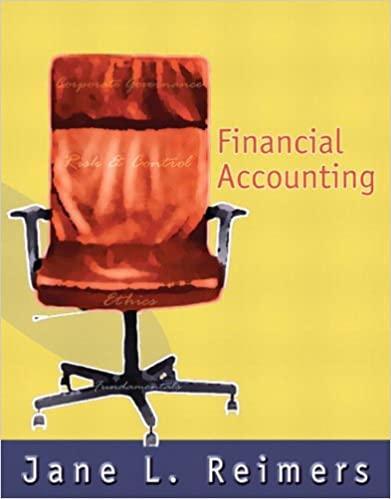Apply time value of money to a personal decision (Learning Objective 3)} Ted Christensen, a second-year business
Question:
Apply time value of money to a personal decision (Learning Objective 3)}
Ted Christensen, a second-year business student at the University of Utah, will graduate in two years with an accounting major and a Spanish minor. Christensen is trying to decide where to work this summer. He has two choices: work full-time for a bottling plant or work part-time in the accounting department of a meat-packing plant. He probably will work at the same place next summer as well. He is able to work 12 weeks during the summer.
The bottling plant would pay Christensen \(\$ 380\) per week this year and \(7 \%\) more next summer. At the meat-packing plant, he would work 20 hours per week at \(\$ 8.75\) per hour. By working only part-time, he would take two accounting courses this summer. Tuition is \(\$ 225\) per hour for each of the four-hour courses. Christensen believes that the experience he gains this summer will qualify him for a full-time accounting position with the meat-packing plant next summer. That position will pay \(\$ 550\) per week.
Christensen sees two additional benefits of working part-time this summer. First, he could reduce his studying workload during the fall and spring semesters by one course each term. Second, he would have the time to work as a grader in the university's accounting department during the 15 -week fall term. Grading pays \(\$ 50\) per week.
\section*{Requirements}
1. Suppose that Christensen ignores the time value of money in decisions that cover this short of a time period. Suppose also that his sole goal is to make as much money as possible between now and the end of next summer. What should he do? What nonquantitative factors might Ted consider? What would you do if you were faced with these alternatives?
2. Now, suppose that Christensen considers the time value of money for all cash flows that he expects to receive one year or more in the future. Which alternative does this consideration favor? Why?
Step by Step Answer:






